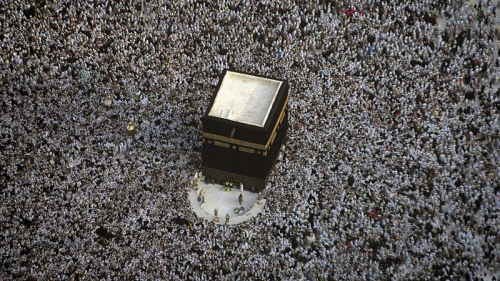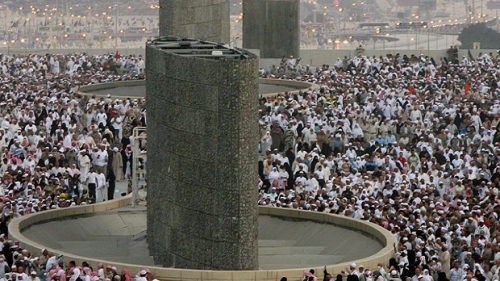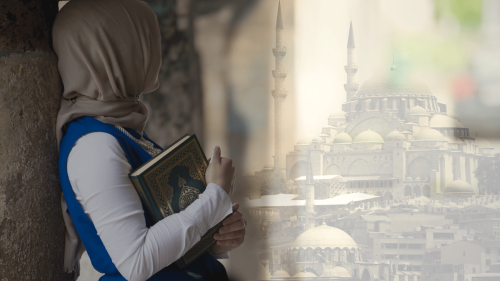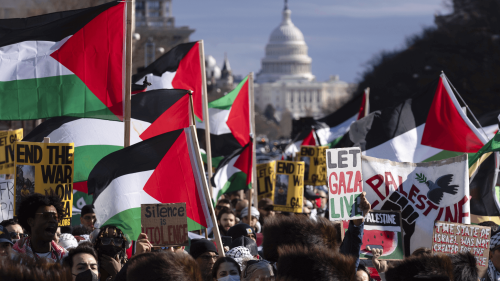Muslims in China keep their faith
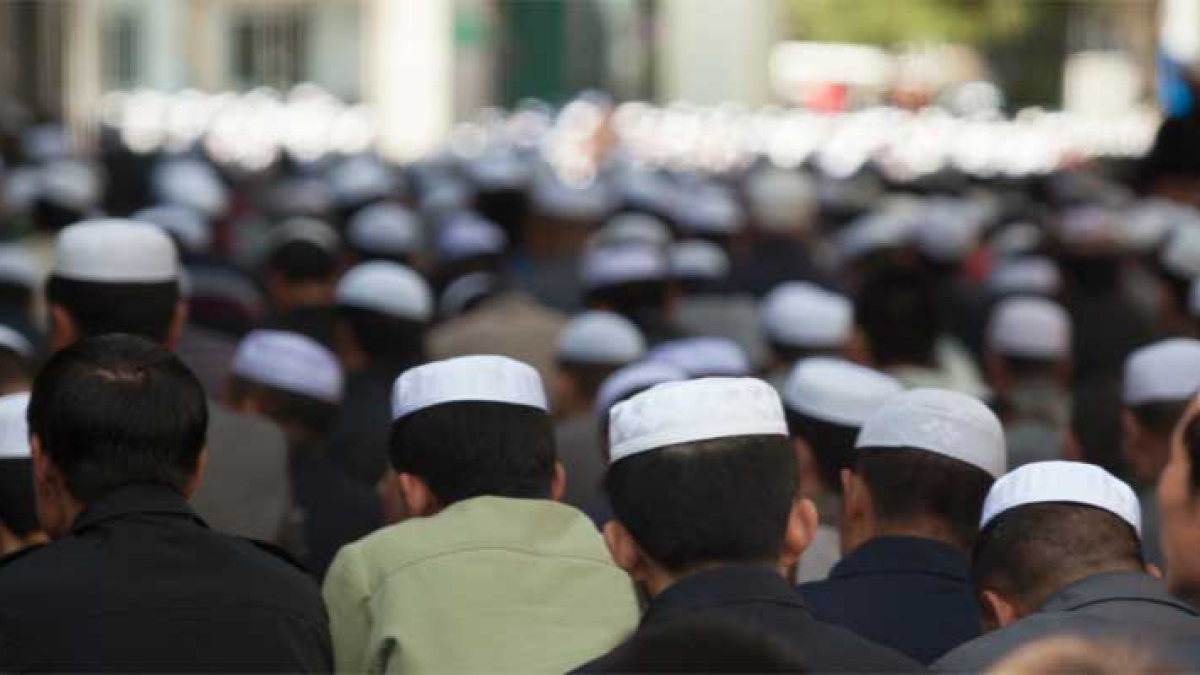
Islam has evolved into the second largest religion in China. Its rich heritage can be traced back to Muslim diplomats and merchants from Persia who spread the religion to the territories between 630AD and 751AD during the Tang Dynasty. In 651AD, Tang Emperor Li Shimin received an envoy sent by Caliph Uthman and this was followed by 16 more official visits by delegations from the Umayyad Caliphate in the next century.
Trading between Muslim and Chinese merchants became so regular that the Song Dynasty court appointed a Muslim as the director-general of shipping and invited 5,300 men from Uzbekistan's Bukhara province to settle in China.
The religion continued to flourish during the Yuan and Ming dynasties with Muslim immigrants given key positions in the administration, until the Manchu-led Qing Dynasty suppressed Islam. Throughout the last 1,400 years, Chinese Muslims predominantly from 10 ethnic minority groups such as Hui, Uyghur, Kazakh, Dongxiang, Kyrgyz, Salar, Tajik, Uzbek, Bonan and Tatar retained their faith and belief as well as culture, forming one of Asia's largest Muslim populations. Among the estimated 21 million Muslims in China, many live in the north-west provinces of Xinjiang, Gansu and Ningxia, but some have spread out to other parts of China including Yunnan, Henan, Beijing, Guangdong and Shanghai.
"Both my wife and I are Hui Chinese, and we have been Muslims like our ancestors," said Beijing resident Shan Chongshan.
"We make sure our children practice this religion and helped them raise our two granddaughters the Muslim way. That's very important in our family."
Shan and his wife live in a Muslim settlement in the historical Niujie (Oxen Street) in the Chinese capital. When he was working as a locomotive operator in his youth, he missed a lot of visits to the mosque.
Now, the retiree has found peace and is free to perform his prayers five times a day at the Niujie Mosque, which is about five minutes' walk from his apartment. He joins his friends every Eidul-Fitri (end of Ramadan holiday) and Eidul-Adha (hajj holiday) at the mosque.
Han Yaohua, who is a bachelor, goes to the mosque every day without fail to pass his time. He would bring his home-cooked food there to break fast with other Muslims during Ramadan.
"I prepare my sahur meals the night before. I just cook some vegetable dishes that go with buns and dumplings, and heat them up at 3am for sahur before fasting for the day," he said.
"During Chinese New Year, there are many temple fairs in China that visitors can look forward to but they are more of a cultural event. To me, Eidul-Fitri is more significant as it is my ethnic festival."
Shan said that Eidul-Adha, better known as the festival of sacrifice, is a very important occasion in the Chinese Muslim calendar.
"As much as I would love to perform the hajj in Mecca with my wife, the expenses are too high. But, I really hope that I can carry out the pilgrimage at least once in my lifetime," he said.
The Hui Chinese are mostly direct descendants of Silk Road travelers, and their ancestors are the product of intermarriage between Central Asians, Arabs, Persians, Han Chinese (the dominant race in China) and Mongols.
Many of the Han Chinese who converted to Islam are also considered Hui people. The Hui speak fluent Chinese as their mother tongue, unlike Muslims from the other nine ethnic groups who are associated with their own non-Chinese languages.
China Islamic Association vice-president Ma Zhongjie said that despite their different ancestral and cultural backgrounds, Muslims from all the 10 ethnic groups observed similar Islamic dietary laws, teachings and dress codes such as white caps for men and head scarves for women.
There are more than nine million Muslims of Hui origin spread over China. Xinjiang is unique and steeped in the religion with about 8.4 million Muslims from the Uyghur, Kazakh and Kyrgyzminority groups.
Though the Muslim population only accounts for less than 2% of China's total population, it continues to grow, and more Muslims from the north-west have moved to the south and east, and built mosques there. During the three most important Islamic festivals - Eidul-Fitri, Eidul-Adha and Mawlid (Prophet Muhammad's birthday) - all Chinese Muslims will be given public holidays, Ma said.
He added that the number of Chinese Muslims going for the yearly pilgrimage in Mecca has been increasing over the past decade.
Last year, about 13,100 pilgrims from China visited Mecca. They chartered flights that departed from cities like Beijing, Urumqi, Lanzhou, Yinchuan and Kunming, since October. Historically, Chinese Muslims had been banned from performing the hajj during the Qing Dynasty. Their religious status was restored after the fall of China's last imperial dynasty.
During the turbulent times in China, very few pilgrims were allowed to travel but the government began to relax its policies towards Muslims in 1978.
Since organized pilgrimage was renewed in 1985, the number of pilgrims have grown to thousands in the last 20 years.
In 2007, the number exceeded 10,000 for the first time and reached 12,700 last year.
Ma said the year-on-year increase showed that not only Chinese Muslims had kept their religion steadfastly under the guidance of the association but they had also gained wealth to pay for the hajj trip.
"There are more than 40,000 certified imams (religious teachers) who carry out their duties at more than 30,000 mosques in China. Most of them received Islamic education from the China Islamic Institute run by the association, and nine other colleges in Xinjiang, Lanzhou, Yinchuan, Kunming and Hebei,"" he said.
The number of imams increase every year and they also conduct lessons at the mosques. After they have completed their lessons in a few years, the students will become imams at other mosques.
However, Ma said they faced major challenges in encouraging the younger generation to embrace the religion.
The fact that many Muslim parents did not receive proper Islamic education or visit the mosque regularly made it even more difficult for their children to do so.
There is no religious class in school because in China the education system is separated from religious teaching.
Furthermore, family education often is not kept up, so children gradually lose touch with their religion and many end up not fasting and performing prayers, he added.
Undergraduate Muhammad Hasan said he had no choice but to give fasting a miss during Ramadan as the atmosphere at his university was not conducive for Muslims to do so.
"Basically, about 40% to 50% of the Muslim students would not fast. But at home, I would certainly not miss the fasting month and would fast together with my parents, grandparents and everyone in my family," said the 24-year-old Hui Chinese from Ningxia.
He said the strong conviction in the faith "still flows in his blood and that of the entire community in his hometown", which is densely populated by Muslims.
"What we can do away from home is to reinforce our faith by deepening our religious knowledge, studying the Quran and taking up religious lessons at the mosque," he said.
Ma said that not only do religious leaders have to provide Muslims the right guidance but they should also promote ethnic integration between Muslims and non-Muslims in the country.
The China Islamic Association, and other provincial and local Islamic associations, have the duty to nurture imams who will spread the knowledge and promote Islamic education at mosques.
"By doing so, the younger generation will become good people who can contribute to the development of the country," he concluded.
*****
Source: The Star Online
Topics: Iman (Faith And Belief), Muslims
Views: 11062
Related Suggestions
to Muslims wherever they are, for the fact that Islam is waxing stronger despite all
odds since inception. Among us there are those who proudly say that they feel the
faith flowing in them, therefore they can't afford to leave or abandon Islam no
matter the situation. Allah is Great, May He be forever with this wonderful ummah,
Amin.






